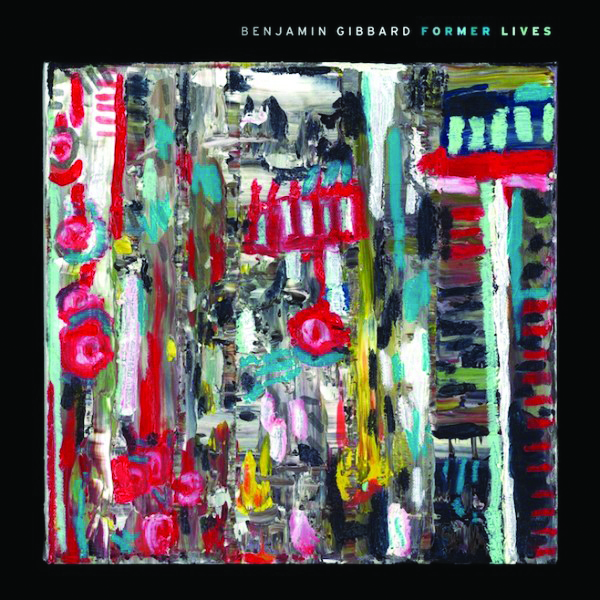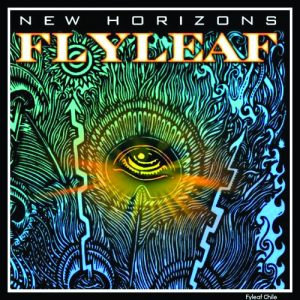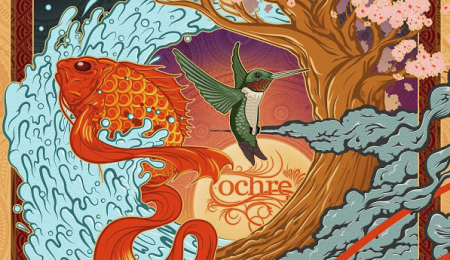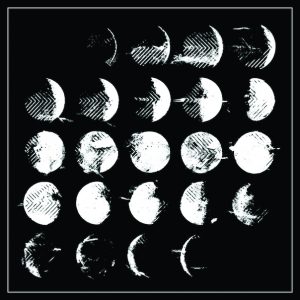 Converge
Converge
All We Love We Leave Behind | Epitaph
4 / 5
WHEN I FIRST heard the opening chords of “Concubine” from Converge’s genre-defining 2001 opus Jane Doe, I was immediately hooked on the band’s brilliantly chaotic hardcore sound. Ever since releasing that seminal album, Converge has proved to be one of the most consistent bands in modern hardcore music.
On the band’s previous effort, 2009’s Axe to Fall, guitarist and producer extraordinaire Kurt Ballou adopted a heavier guitar tone that sounded more reminiscent of modern metalcore bands, but Converge managed to not fall prey to any clichés and produced their heaviest and best album since Jane Doe. Naturally, the expectations were through the roof for a follow-up, and on All We Love We Leave Behind, Converge does not disappoint.
The album sounds similar in style to Axe to Fall but with slightly more variety in songwriting, resulting in a greater than usual number of songs during which you can actually make out what frontman Jacob Bannon is screaming. This is apparent in tracks like the groovy “Coral Blue” and the awesome straight-up punk rock attack “Vicious Muse.”
As tight as the group sounds, they don’t really build on the sound they established on their last release. Regardless, All We Love We Leave Behind is still a very welcome addition to the band’s legacy, even if it doesn’t stray too far from the familiar.
—Max Szyc
 Mise en Scene
Mise en Scene
Desire’s Despair | Pipe & Hat
3 / 5
WINNIPEG-BASED POP-ROCK DUO Mise en Scene puts forth a pretty solid effort with Desire’s Despair, leaning on a sound largely reminiscent of old surf rock. While at some points this works really well, singer Stefanie Blondal Johnson’s voice doesn’t quite mesh with the music as well as it could. While at her best, Johnson is quite competent and at home with the duo’s sonic spectrum, there are a few tracks on the album where she seems to miss the mark.
A handful of the songs on Desire’s Despair are almost reminiscent of The Beach Boys, but not always in the way you’d like them to be. There are also a couple of songs that seem to suffer lyrically in the band’s attempt to make them sound more classic or retro. The last track, “Sherry,” is especially guilty of this. Some of the lyrics make little sense, and if you start to pay too much attention, you may find them confusing enough to distract you from parts of the song you might actually like.
Overall, Desire’s Despair is a good debut and it’s certainly worth a listen. While it could have been better executed, it marks a great start for Mise en Scene.
—Brennan Bova
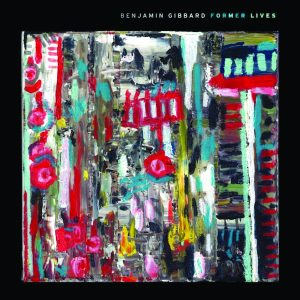 Benjamin Gibbard
Benjamin Gibbard
Former Lives | Barsuk
2.5 / 5
IT’S RATHER AWKWARD when the frontman of a popular band comes out with a solo record that doesn’t sound much different from anything the band has already released. Benjamin Gibbard’s solo debut Former Lives exemplifies that awkwardness. The Death Cab for Cutie frontman offers up a collection of fairly average songs that would fit in just fine as deep cuts from the band’s anthology and only branches out in ways that he shouldn’t.
At its best, Former Lives offers up a handful of succulent songs that line up with Gibbard’s reputation, although they aren’t exceptionally memorable. But at its worst—right around the middle of the record—it leaves the lasting impression of a disjointed effort to deviate from what’s made him shine.
As tiring as it is to hear the same thing from the same guy over and over again, I’ll take that over hearing whatever “Something’s Rattling (Cowpoke)” is supposed to be. Gibbard is able to hit the sweet spot with tracks like “Lily” and “A Hard One to Know,” but the good songs are overshadowed by unfavourable attempts like the Beatles-esque ballad “Duncan, Where Have You Gone” and the unwelcome bluesy swing of “Oh, Woe.” Former Lives ends with “I’m Building a Fire,” the quintessential closer composed of a stripped-down acoustic guitar and Gibbard’s metaphorical crooning laid overtop. Sadly, this adherence to formula is one of the memorable points of the album.
“These songs span eight years, three relationships, living in two different places, drinking then not drinking,” Gibbard said of the album. “They’re a side story, not a new chapter.” Unfortunately, what Gibbard fails to realize is that a side story should be, in a way, a chapter of its own. Former Lives feels strained, as if it only exists as a venue for songs that didn’t fit anywhere else—like a beautiful frame for a messy painting.
—Adam Feibel
New Horizons | A&M/Octone
4 / 5
FLYLEAF’S THIRD STUDIO album New Horizons will be the last released with their beloved singer Lacey Sturm. Kristen May, formerly of Vedera, will be replacing the vocalist in their upcoming tour.
Sturm, arguably a better version of Evanescence singer Amy Lee, will be leaving the band. Her departure follows the death of Rich Caldwell, one of the band’s audio engineers, and the birth of her son last year.
While many fans would argue that the band will never be the same without Sturm, she ends her time as a member of Flyleaf with another great album.
New Horizons contrasts with Flyleaf’s recent Remember to Live EP, which contained surprisingly lighter songs and uplifting lyrics. The songs on New Horizons are darker, but still have familiar themes of faith and perseverance for which the band has become known.
“Green Heart” and “Call You Out” are heavier songs that inspire nostalgia for the uniqueness of the band’s self-titled first album. Other highlights include “Great Love,” a moving and intense love song that was beautifully pulled off, and “Bury Your Heart,” which critiques society’s values of consumerism and capitalism.
New Horizons is yet another example of how Flyleaf shares their faith and brings strength to their fans through music.
—Krystine Therriault

